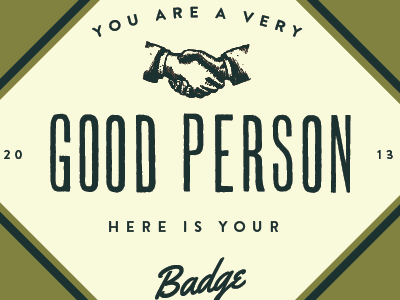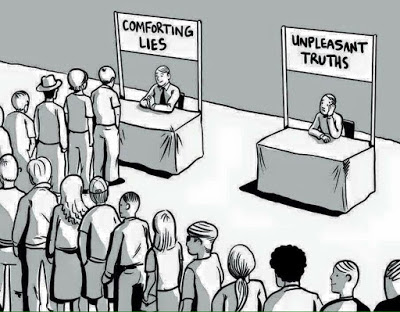Stoic philosophy is one of the humbler philosophies, where the overall tenet is to grit your teeth and just get on with it. This philosophy is, of course, much more complicated than that, but a lot of the teachings, hard as they are to put into practice, are easy to grasp. We might even see the logic in adopting many of these ascetic practices.
One major area that is confusing for me, as I’m sure it is for many of the stoic followers, is the subject of man living according to his nature. The principle sounds good, but what is this human nature that we should live in accordance with?
It might be the case that my research skills are wanting, but I haven’t found too much literature concerning human nature, let alone how to live according to it.
For this, I have had to rely on other philosophers and thinkers who are more liberal with their findings on the subject matter compared to the stoics.
I have found five ideas on what constitutes human nature, and that might be useful for a practicing stoic. This is certainly a humble beginning, but a beginning none the less
1. Man as a condemned being

The story of the fall is one of the oldest in man kind
If there is an intersection between the various philosophies, and religions, it is that man is a condemned being. I have found that all philosophies and religion have this basic understanding in common. That it is the nature of man, given the environment that he finds himself, to suffer.
Some philosophers go as far as to suggest that suffering is built into life and is virtually inescapable, while goes a step further to suggest that the human nature, in itself, guarantees that man must suffer despite outside conditions, good or bad.
The Buddha also came to the grand conclusion, after many years of wondering and suffering, that life, indeed, is suffering.
To accept man as condemned from birth, pessimistic as it may seem at first, is actually a great relief if looked at from the right perspective. When we suffer, we tend to imagine that we are singled out by the cosmos as the unwitting, unwilling, and undeserving target of this suffering.
Understanding that troubles are inescapable helps us to shed at least part of the burden. To understand and to fully accept that it is in the nature of man to endure hardship softens the blow a little when trouble eventually knocks at the door.
Given this understanding, we can prepare our self for the ‘evil day’ with equanimity and even a little resignation knowing that what we endure is inevitable.
Coming from this perspective, it is much easier to practice the stoic virtues of patience, equanimity, temperance, and even courage. We build these virtues specifically because it demanded by our nature to endure the world, and not because it makes us good in some abstract sense.
We become as a soldier who prepares for battle, not because killing is good, but that he has a duty to discharge when conflict is brought upon his doorstep by the evil forces.
2. Man as an irrational being

Many of us conceive of the world as an existing objective reality, and that might very well be the case. The issue of whether or not an objective world exists is an entirely different post. For our purposes, it would be right to understand, or at least attempt to understand, how we see the world.
Rather than view an externalized objective world, some, for example, would argue that we see our interpretation of the world rather than the world as it exists out there.
It is hardly a stretch to suggest that our senses are not capable of processing every single detail of the world without. Given that we have to function, preferably successfully in the world, it makes sense that we would only take in the most ‘crucial’ information and use this as a basis of interpreting the world. From this interpretation we can then draw conclusions on how to act in the world.
This view is important because we could very easily be drawing the wrong conclusion about the world around us, and by extension, acting under the wrong premise, and therefore getting wrong results.
Like a student who uses the wrong formula to solve a mathematical equation, it doesn’t matter how long this student works on the problem. The answer will always be incorrect given that they are applying the wrong formula to the correct question.
Whether or not there is a wrong or right way to interpret the world, once again, is a whole other discussion on relativism. At the very least, it would be useful to have a few different interpretations handy in any given situation, and from there decide which one best suits the scenario.
This, I believe to be the very foundation of philosophical study. Rather than rely on random or socialized interpretations of the world around us, we alternatively rely on well thought out, tried, tested, and even personal interpretation of events and the world around us.
Given this perspective, the words of Marcus Aurelius ring even truer ‘Decide that you have not been injured and you will not have been injured’.
In short, you could say that many of the troubles we experience, or the lack of forward progress, is as a result of the wrong interpretation of the world around us, rather than something intrinsically faulty with the objective world.
To take this a step further, some would even argue that the objective world is impartial, and that it is our interpretation of events that is reality as we experience it subjectively.
3. Man as a finite being

Probably one of the biggest human motivators is the fear of death. While for the stoic contemplating death is part of his acetic activities, for most people, any thought of death, be it one’s own or another’s, is deemed morbid or even as an invitation for bad luck.
The question of our mortality also makes a strong case for hedonism or nihilism. Carrying the awareness with us that we eventually turn to ash, it is then difficult to justify spending our life toiling. Why not simply enjoy all the pleasures we can get our hands on if eventually everything ends?
For the stoic, the idea that we are mortal being emphasizes the importance of practicing virtue and living according to nature. The fact that our time here is short is all the more reason why we shouldn’t waste it on frivolous things, but rather aim high towards the ideal being and work our way through to accomplishing that ideal.
4. Man as a flourishing being
A tree will dig its roots as deep as it can, grow as high as it can, and bear as many fruits as it is capable. Man, endowed with the gift of free will, has the choice to flourish up to his highest capabilities, to stagnate, or worse still, degenerate.
The law of atrophy works on man. There is no such thing as staying the same. A thing must either grow or die. Man, however, can refuse to follow his nature and put a limit on his growth.
What growth for a human being looks like can often seem like an abstract concept. The best definition of human growth that I can think of is to continually become a worthy contender in life and its many challenges.
Growth in stoic philosophy means to develop our virtues including courage, patience, equanimity, temperance, and fortitude.
5. Man as a divine being

Here we will have to rely on the idealists.
I don’t believe that man as a divine being is necessarily tied to the idea of religion. For those who aren’t keen on religious imagery, another way to put this is man as a co-active agent together with the source of creation, whatever that might be.
I, personally, prefer the religious imagery as it is far less cumbersome than the previous statement, and breathes life to such an abstract idea as the divinity of man.
Nietzsche, for example, believes man to be closer to a god than a worm. I am of the opinion that the world we live in currently is anti-human in that it doesn’t recognize the divinity of man.
We are constantly bombarded by messages of how everything that is wrong with our life can be attributed to someone else. We have been infantilized by the government, where the average person feels a sense of despair and helplessness in directing the course of his/her life.
I would say that out of these ideas explored so far, man as a divine being is the most encouraging. This says to me that I can rely on my own efforts for salvation; that I do not have to wait until the world is transformed into nothing but saints, or until the government can get its act together.
That, as other divine beings, I am capable of goodness, joy, wisdom, strength, empathy, and all of the other qualities that we project on to the deity.
Most of all, the suggestion that I might be part divine says to me that it is entirely within the realm of possibility that I might, just as God did, create my world, and rest assured that it is good.
The best case that I have heard for man as a divine being, and maybe even greater than the gods, is that while the gods are naturally endowed with strength, man has to earn it, and therefore is greater than the gods.
I, as an animal endowed with a piece of the divine, may hope, even in the darkest night, that I have the capacity to create heaven on earth. This suggestion alone might be what I need to appreciate this difficult and absurd place that we call the world.













